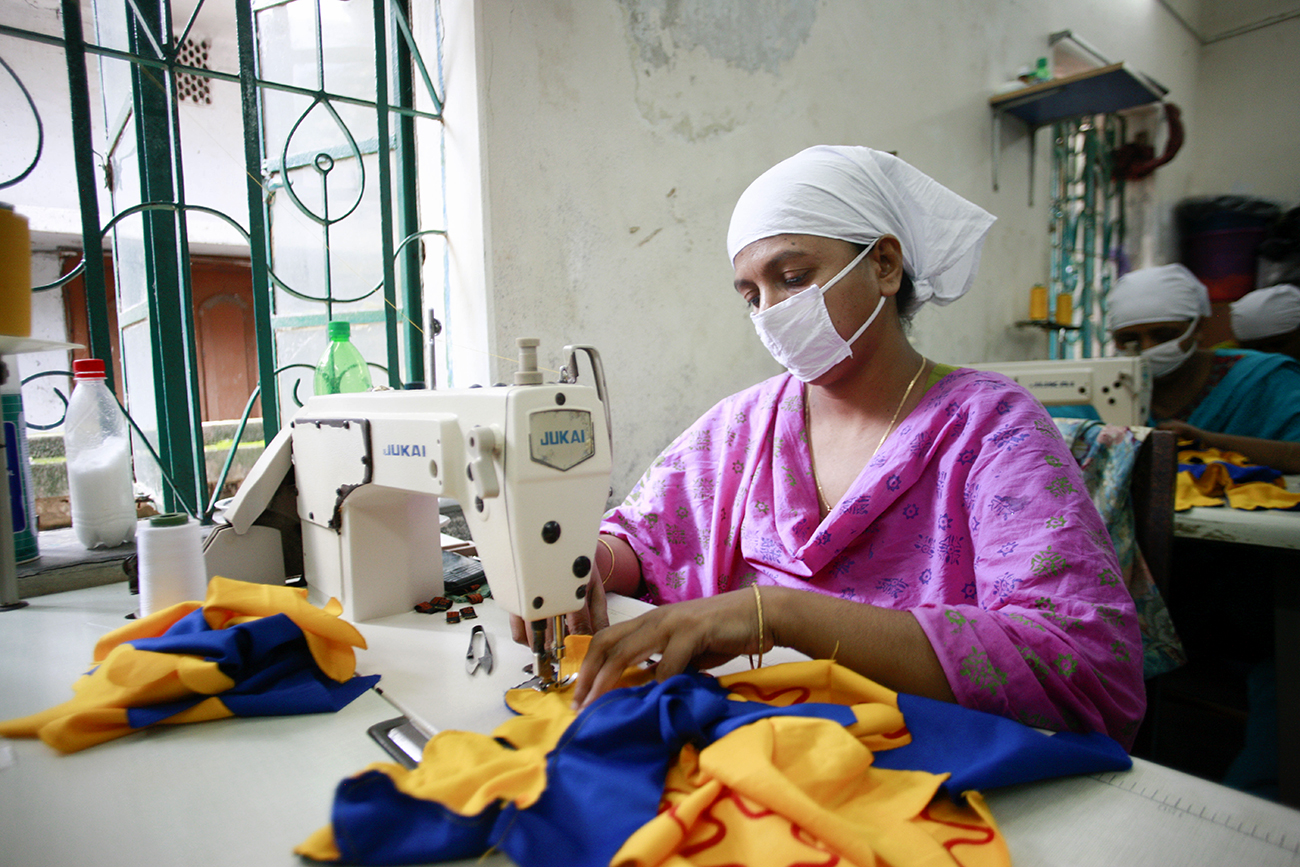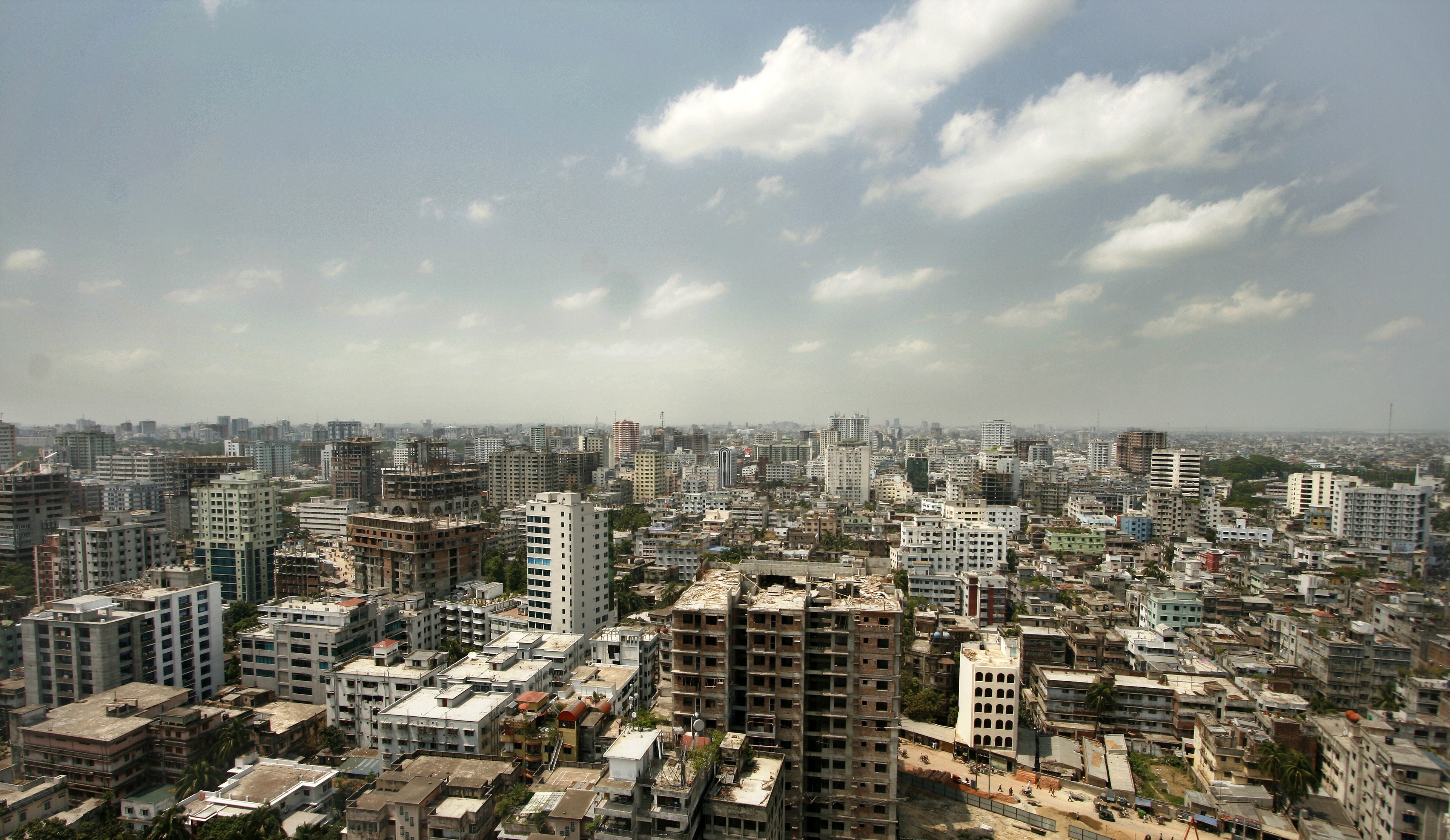
A Bangladeshi worker swings fabrics for toys at a small factory in Dhaka, Bangladesh.
ZUMA Press/Global Look PressIn 2015, then Chief Economist of the World Bank Kaushik Basu said Bangladesh could become the “next Asian tiger.” Last year Bangladesh achieved its highest growth in the last 8 years securing a 7.05 per cent GDP growth rate which is also a substantial increase from the 6.55 per cent growth rate registered in 2014-15. In the current financial year, the government is aiming for 7.4 per cent, while the target for 2020 is 8 per cent.
Despite rising security concerns and internal disruptions, the Sheikh Hasina-led government of Bangladesh, has been strongly focusing on economic growth and development by further opening up the country's economy to foreign investors, easing the process of doing business, promoting exports and developing the country's infrastructure. Bangladesh's closer neighbours like South Korea, Japan, India and China have recently increased their presence in the country joining the UK, U.S. and others that have been investing in the country for a long time, especially in the textile, banking and telecom sectors.
Till recently, Russia's presence in modern Bangladesh's economic scene was negligible despite the fact that it has historically been considered an important partner. The Soviet Union assisted in restoring and setting up new infrastructure projects in Bangladesh after it gained Independence in 1971.
For the first time since the collapse of the Soviet Union, things are looking up for Russia-Bangladesh trade.
In an exclusive interview with RIR on the sidelines of the Gateway of India Dialogue held in Mumbai earlier this month Mohammed Shahriar Alam, State Minister of Foreign Affairs of Bangladesh said cooperation between Bangladesh and Russia is growing, especially in government-to-government sectors.
 Skyscrapers in Dhaka. Bangladesh is one of the fastest growing economies in Asia. Source: Getty Images
Skyscrapers in Dhaka. Bangladesh is one of the fastest growing economies in Asia. Source: Getty Images
“We have undertaken the single largest project in the history of Bangladesh with the help of the Russian government where the funding is expected to reach $11 billion,” Alam said. “This state loan is for the first ever nuclear power plant (in Bangladesh) and that is followed by trade and investment from Gazprom in the energy sector, mostly exploration of gas.”
Russia and Bangladesh signed a deal for the 2400-megawatt Rooppur nuclear power plant in 2013. The first ever nuclear power plant in Bangladesh is being developed by the ASE Group of Companies (ASE), part of Russia’s state-owned Rosatom on the eastern shore of Padma River, 160 kilometres northwest of Dhaka.
The nuclear power plant consists of two VVER power units, each with a capacity of 1200 MW. The first unit is expected to be commissioned by 2022 and the second by 2023.
The total cost of the project cost amounts $12.65 billion, 90 per cent of which will be lent by Russian government. The loan is to be repaid over 20 years with repayments due to begin in March 2027.
“You don’t go to any country to set up a power plant, you only do it when the country meets different criteria set by the International Atomic Energy Agency (IAEA), and at the same time as Bangladesh being the country hosting this plant, you don’t go to anyone to buy a power plant, it can only happen when you have deeper level of understanding and trust,” Alam said.
“Unfortunately, there was lack of continuity of policy of government of Bangladesh after the death of father of the nation in 1975, and we didn’t do enough justice to the relationship (with Russia) that we have established in the early days, but now is the time to do so,” he added.
To make Bangladesh a better destination for doing business, the government is providing various incentives for foreign and local investors ready to establish manufacturing facilities, including tax holidays, full repatriation of profits, and preferential treatment in terms of getting the utilities needed to operate an office of manufacturing unit. In case of the Rooppur project, for example, last year the Bangladesh government exempted it of all taxes and duties including import duty, VAT, regulatory duty, advanced VAT and supplementary duty on all imported goods, machinery and parts.
The data from Russia’s Federal Customs Service reveals the volume of bilateral trade between Russia and Bangladesh crossed $1.4 billion in 2016, almost double since 2012. Bangladesh has been traditionally exporting seafood, jute and jute products, tea, leather, home textiles and ready-made garments to Russia.
Russia’s exports to Bangladesh are dominated by cereals (around 58 per cent), machinery and mechanical equipment, metals, minerals and fertilizers, chemical and forestry products.
Despite bilateral trade figures remaining rather negligible, cooperation in the energy and power sector has widened considerably in the recent past. Currently, around 20 per cent of Bangladesh’s total electricity output is provided by two power plants in Ghorasal and Siddhirganj, both constructed with Soviet assistance in the 1970s.
In 2014, Russia’s Inter RAO-Engineering, a subsidiary of Inter RAO Group, was awarded a contract from Bangladesh Power Development Board (BPDB) for the modernization of the 5th block of Ghorashal plant. In February 2017, the company signed another contract with BPDB for the overhauling of the 210-megawatt Siddirganch plant.
Gazprom International, a part of Gazprom holding specializing in implementing upstream-projects outside Russia, has been operating in Bangladesh since 2012. By mid-2016, the company completed work on two drilling contracts signed with Bangladesh Petroleum Exploration and Production Company Ltd (BAPEX), Bangladesh Gas Fields Company Ltd (BGFCL) and Sylhet Gas Fields Ltd (SGFL). In total, the Russian company has designed and built 15 wells in six different fields across Bangladesh with more than 50,000 metres drilled in total.
Gazprom International and Petrobangla are currently looking into opportunities to continue cooperation in the field of production drilling considering the positive results achieved earlier. “This seems particularly sensible in view of the recent adoption of a new 5-year government drilling program for over 100 wells at gas fields,” the Russian company’s latest statement noted.
Gazprom International might also look at establishing a joint venture with BAPEX to implement hydrocarbon field development and operation projects, it added.
Telecommunications is another sector where Russian companies managed to make a considerable impact in Bangladesh over the past seven years.
Banglalink, one of the country's largest telecom operators is owned by Egypt-based Global Telecom Holding, which is 51.9 per cent owned by VimpelCom Ltd, world's sixth largest operator founded in 1992 in Russia. Today VimpelCom Ltd. whose largest shareholders are Russian billionaire Mikhail Fridman’s LetterOne (47.9 per cent) and Norway’s Telenor (23.7 per cent), is an Amsterdam-based holding with operation in more than 12 countries, including Russia, Ukraine, Armenia and Bangladesh.
In 2008, Multinet Group, a group of telecommunication companies headquartered in Moscow and providing broadband wireless Internet access in the emerging markets, including Pakistan, Afghanistan, Bangladesh and CIS and African countries, entered Bangladesh by acquiring local internet service provider, Bangladesh Internet Exchange Ltd (BIEL). Multinet then sold a part of the Bangladesh business to a consortium of Russian investors comprising of billionaire Alexander Mamut and ICT Group, which is run by billionaire Alexander Nesis.
Later BIEL and another local ISP acquired by Multinet (New Generation Graphics Ltd) were merged under a brand Ollo that became one of the pioneers of 4G LTE network in not only in the capital, but in remote areas of Bangladesh. Since September 2015, Ollo has launched tis 4G LTE network in Jessore, Gopalganj, Syhet, Mymensing, Moulovibazar, Barisal, Rangpur and Rajshahi districts of Bangladesh.
According to Russian Embassy in Bangladesh, the Multinet Group has invested more than $100 million in the country. The company did not respond to requests for comment.
In a joint venture with Beximco Group, one of Bangladesh's largest industrial conglomerates, Russia’s GS Group (formerly General Satellite) launched the country’s first Direct-To-Home (DTH) satellite service provider RealVU in 2016. GS exited the business earlier this month after successfully completing the investment cycle.
Although the scale of cooperation between Russia and Bangladesh is far smaller when it comes to business-to-business interactions, the private sector’s mutual interest in exploring investment and trade opportunities is increasing, Bangladesh’s State Minister for Foreign Affairs believes.
“Opportunities are huge, we need to have a banking relationship with Russia and that’s something we have communicated at the government level, and concerned authorities are looking at it,” Alam said. “So Russia is a very important partner for the economic development of Bangladesh, as she was in the very beginning of our existence post 1971.”
Alam added that Bangladesh and Russia are now expected to sign a few agreements that would pave the way for stronger and deeper economic and political relations.
Earlier this month, an agreement between the governments of Russia and Bangladesh on visa-free visits for persons holding diplomatic and official passports entered into force. That will further ease interactions between countries on a government-to-government level. Russian diplomats in Bangladesh have often stated that setting up of the Intergovernmental Commission on Trade, Economic, Scientific and Technical Cooperation and reopening of the Russian Trade Representation office in Bangladesh would boost partnership ties.
Ksenia Kondratieva is an independent journalist based in Mumbai covering business, economic reforms and development, and international relations.
If using any of Russia Beyond's content, partly or in full, always provide an active hyperlink to the original material.
Subscribe
to our newsletter!
Get the week's best stories straight to your inbox